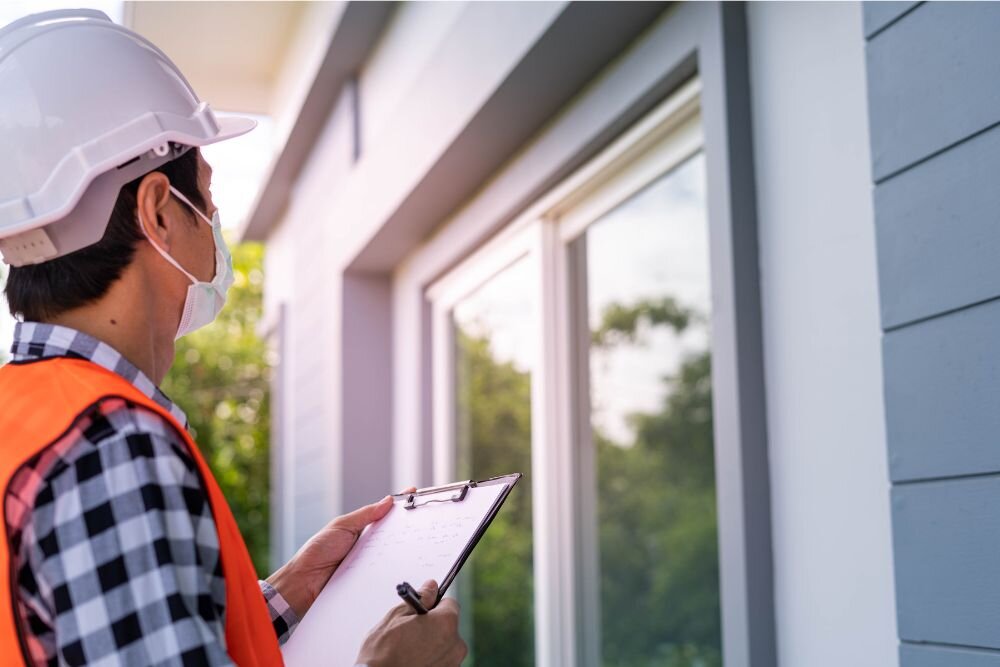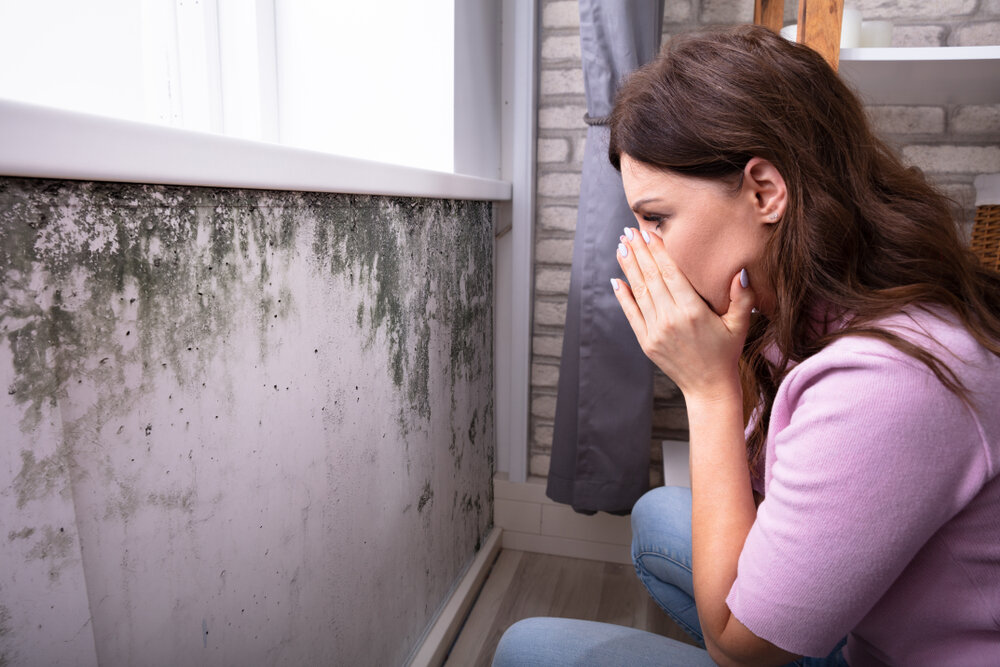Selling a house with mold in Alabama requires careful disclosure and understanding of local real estate laws to protect both buyer and seller while maintaining market value. Addressing mold growth and remediation promptly can help ensure a smoother transaction and satisfy disclosure obligations.
Understanding Your Legal Obligations When Selling a Mold-Affected House in Alabama
Selling a house with mold issues in Alabama involves specific legal duties. Not following these can lead to serious legal problems. This guide will help you understand these duties so you can make sure your real estate transaction goes smoothly.

Alabama’s Mold Disclosure Laws: What Sellers Need to Know
In Alabama, sellers are required to disclose any mold in their home to buyers. This is a legal requirement that ensures buyers understand what they are purchasing. According to Alabama law, sellers are required to disclose any known mold issues that might jeopardize the property’s safety or value. “Retaining confidence in real estate transactions depends on honesty,” stated a representative for the Alabama Association of Realtors.
Legal Ramifications of Failing to Disclose Mold Issues
If you don’t disclose mold problems, you could face legal consequences like lawsuits and penalties. If a buyer finds mold after buying a house and shows that you knew about it, you might have to pay for fixing it and other costs. Non-disclosure can harm your reputation in the real estate market.
Defining a “Material Defect” in Relation to Mold in Alabama Real Estate
In Alabama real estate, mold can be a “material defect” if it affects the property’s condition or a buyer’s decision. A material defect must be disclosed by the seller since it may affect the livability and value of the property. According to the National Association of Home Inspectors, a material defect is anything that would cause a buyer to change their mind or haggle over the purchase.
Legal Self-Protection: Crucial Records and Processes
To protect yourself legally when selling a mold-affected home, keep all necessary paperwork and follow the correct steps. Important documents include:
- Inspection Reports: These show the extent and condition of the mold.
- Repair Records: These detail any actions taken to fix mold problems.
- Disclosure Forms: These are official records of any known mold issues shared with buyers.
Following these documentation rules can help protect you from future legal issues.
Seeking Legal Counsel: When to Consult a Real Estate Attorney
If you’re not sure about your legal duties or if there are disputes, it’s wise to talk to a real estate attorney. An experienced lawyer can give advice and representation specific to your case. They help ensure all disclosures meet legal standards, lowering the chance of expensive court cases. The American Bar Association suggests that getting legal help early can help manage complex real estate situations effectively.
Sellers can confidently handle the sale of a mold-affected property in Alabama by being aware of and adhering to these guidelines, which will lower legal risks and ensure a successful closing.
Assessing and Addressing Mold Damage Before Listing Your Alabama Property
Finding a Qualified Mold Inspector in Alabama: Certification and Expertise

If you’re planning to sell a property in Alabama, it’s important to handle any mold problems first. Hiring a qualified mold inspector is key. Look for inspectors with the right certifications and experience in real estate evaluations. A thorough mold inspection can help ensure your home is ready for sale.
Deciphering Mold Inspection Reports: Understanding Severity and Remediation Needs
You will receive a report detailing the problems discovered following a mold inspection. This report will outline the extent of the mold problem and the necessary remediation measures. When getting your property ready for sale, it’s critical to comprehend these specifics. Potential buyers can feel more at ease if mold problems and remediation plans are clearly documented.
Common Types of Mold Found in Alabama Homes and Their Impact
Both health issues and property damage can result from mold. Understanding the typical mold species found in Alabama homes is crucial. While some molds can cause structural damage to the property, others are pathogenic or allergenic and can affect residents’ health.
Cost of Mold Remediation in Alabama: Factors Affecting Pricing and Budgeting
Mold removal can have a range of costs. Pricing in Alabama depends on a number of variables, including the type of property, the extent of mold damage, and the necessary remediation techniques. To ensure that your budget is accurate, it is a good idea to obtain estimates. By taking care of the mold before you sell, you can avoid unforeseen expenses during the negotiation process.
DIY Mold Cleanup vs. Professional Remediation: Weighing the Risks and Benefits
When deciding on mold removal, you need to consider the pros and cons of doing it yourself versus hiring professionals. DIY cleanup might save money, but it can be risky, especially for health and safety. Professional remediation ensures a thorough cleanup by experts, creating a healthier home environment.
For more detailed guidance on preparing your property for sale, feel free to explore additional resources or contact North Alabama House Buyers.
Strategies for Selling Your Mold-Affected Alabama House

Pricing Your Property Competitively: Considering Mold’s Impact on Market Value
It can be difficult to determine the right price for your Alabama home that has been affected by mold. Setting a fair price is crucial because mold frequently lowers market value. Determine the property’s value first by assessing its present state. It can be beneficial to speak with a local real estate professional. Keep in mind that mold removal can be expensive and impact the sale. These elements should be reflected in your pricing to draw in customers while maintaining market realism.
Marketing Your Property Effectively: Highlighting Positive Aspects and Addressing Concerns
When marketing your Alabama house, focus on its good points but also mention any known issues like mold. Working with a real estate professional can help you write a listing that informs potential buyers. Be honest about any concerns, letting buyers view the situation clearly. Offering a pre-inspection is an option that may reassure buyers and make the contract process smoother.
Transparency and Disclosure: Effectively Communicating the Mold Issue to Potential Buyers
Being open is important when selling a home with mold problems. Federal and state laws require sellers to disclose mold issues. Make sure to document all known problems carefully. This disclosure protects both the buyer and seller. Let buyers know what the situation is by sharing detailed information and any remediation efforts. Being upfront helps avoid legal issues and builds trust.
Negotiating with Buyers: Addressing Concerns and Reaching a Mutually Acceptable Agreement
Negotiation is key when selling your property. Address buyers’ concerns and work towards an agreement that works for both parties. Be ready to discuss terms related to mold, like lowering the price or covering remediation costs. Agree to fair conditions that protect your interests while making the deal attractive to the buyer. Clear communication can lead to a smooth transaction.
Closing Costs and Contingencies: Understanding Potential Additional Expenses
Knowing about closing costs and contingencies is essential when selling a mold-affected house. These expenses might include extra obligations related to mold disclosure or remediation. Learn about the terms involved in the transaction, especially those concerning mold-related clauses. Being prepared for these financial aspects ensures the transaction is completed without surprises at closing.
Mitigating Health Risks Associated with Mold
Common Types of Mold and Their Health Implications in Alabama Homes

Particularly in humid states like Alabama, mold is a common issue in homes. Aspergillus, Cladosporium, and Stachybotrys (black mold) are common mold species. These molds have the potential to harm people’s health, especially those who have respiratory or allergy conditions. Mold exposure can exacerbate asthma and cause allergic reactions, including sneezing, skin rashes, and itchy eyes, according to the Centers for Disease Control and Prevention (CDC). Keeping mold out of your house promotes health.
Symptoms of Mold Exposure: Recognizing Potential Health Risks
Recognizing symptoms of mold exposure is important to prevent health issues. People often have respiratory problems such as coughing and wheezing, along with allergic reactions like nasal congestion and eye irritation. If you notice these symptoms in yourself or others at home, it may be time to check for mold. Early identification can help prevent more serious health complications.
Protecting Yourself and Buyers from Mold Exposure During the Sale
Protecting buyers and yourself from mold exposure is crucial when selling a house. Before listing the property, sellers should perform comprehensive mold inspections and other safety measures. You might be required by law to notify prospective buyers of known mold problems. Being open and honest not only protects consumers but also fosters trust. Because of the high humidity in Alabama, it is imperative that you make sure you comply with these disclosure requirements.
Mold Remediation Methods: Effectiveness and Safety Considerations
Effective mold remediation methods are needed to safely tackle mold problems. Some common techniques include:
- Containment and Ventilation: Isolating the area to prevent mold spore spread.
- Removal of Affected Materials: Disposing of contaminated materials like drywall and insulation.
- Cleaning and Disinfecting: Using specialized cleaners to remove mold colonies.
Hiring professional services ensures these methods are done safely and effectively. Experts can assess the situation and recommend the best remediation techniques for your home’s needs.
Importance of Post-Remediation Testing and Verification
After remediation, post-remediation testing and verification confirm that the mold issue is resolved. This involves an independent inspector checking indoor air quality to ensure all mold spores are gone. According to the Environmental Protection Agency (EPA), testing after remediation is key to verifying cleaning efforts and maintaining a healthy living space for current and future occupants.
Preventing Future Mold Growth in Your Alabama Home
Identifying and Addressing Moisture Sources: Preventing Future Mold Problems

Preventing mold growth starts with finding and fixing moisture sources. Check places like basements, bathrooms, and kitchens for leaks in plumbing or roofs, and repair them quickly. Use dehumidifiers to lower humidity inside your house, which is especially important in Alabama’s humid climate. The Environmental Protection Agency (EPA) suggests keeping indoor humidity between 30% and 50% to reduce mold. Managing moisture well protects your real estate property from mold issues.
Improving Ventilation and Air Quality: Key Preventive Measures
Better ventilation and air quality help stop indoor mold growth. Install exhaust fans in bathrooms and kitchens to remove moist air. Regularly clean HVAC systems to keep out mold and allergens. Opening windows can also improve air circulation. Besides preventing mold, good ventilation supports health by keeping the air cleaner indoors.
Environmental Factors Specific to Alabama Climates and Their Impact on Mold Growth
Alabama’s warm and humid climate is perfect for mold growth. Knowing about environmental factors like humidity and rainfall can help you protect your home. During high humidity, use air conditioning to control indoor conditions. Weather seals around windows and doors prevent moisture from getting inside. Understanding local weather helps limit mold-friendly conditions.
Long-Term Mold Prevention Strategies: Cost-Effective and Sustainable Solutions
Long-term mold prevention can be affordable and sustainable. Regular maintenance and quick action on issues reduce the need for expensive mold remediation later. Use mold-resistant materials, like special drywall and paint, to lower the risk. Sustainable options like houseplants can help absorb indoor moisture. A proactive plan ensures ongoing protection against mold.
Resources for Ongoing Mold Prevention: Helpful Guides and Professionals
Use guides from the Centers for Disease Control and Prevention (CDC) for ongoing mold prevention. These resources provide valuable information on preventing and handling mold. Hiring professionals for regular inspections offers expert advice specific to your home. Keep records of inspections and preventive steps. Working with experts keeps your mold prevention effective.
Following these steps helps Alabama homeowners manage moisture and mold, protecting their property and health. For personalized advice, contact North Alabama House Buyers for more tips on maintaining a mold-free home.
How can I sell my house in Alabama with mold issues?
Selling a house with mold in Alabama means you need to be honest about the mold problem. You should let potential buyers know about it and think about hiring experts to fix the mold. Highlight the good things about your property in your listings to attract buyers.
Is buying a fixer-upper with mold in Alabama a good investment?
Buying a fixer-upper with mold can be a smart move if you’re ready for the work involved. Fixing the mold can make the house more valuable, and Alabama’s housing market offers chances for profitable renovations.
How does mold affect home sales in Alabama?

Mold can lower a home’s value and lead to higher insurance costs. Sellers should deal with mold issues early to avoid scaring off buyers and make the selling process smoother.
What dangers come with purchasing a home in Alabama that has mold?
Buying a house with mold can be risky because it might affect your health and require expensive repairs. It’s important to inspect the house carefully and plan for mold removal to turn the risk into a good opportunity.
What tips do you have for selling a moldy house in Alabama?
Clean up and deal with mold issues before selling. Be honest about the mold in your disclosures. You might want to hire professionals to check and fix the mold. Use good pricing strategies to draw in buyers.
Can I list a house with mold on property listings in Alabama?
Yes, you can list a house with mold, but you must be upfront about it. Point out any efforts made to fix the mold and consider offering lower prices to attract interested buyers.
How can we manage rental properties with mold in Alabama?
Regularly check and maintain your rental properties. Address mold problems quickly when tenants report them. Make sure there is proper ventilation and moisture control to stop mold from coming back.
What impact does mold have on Alabama’s real estate market?
Mold can decrease property values and slow down sales. However, investors can find opportunities in homes that need work, like fixing mold issues, to make a profit.
Key Insights
- Selling a house with mold in Alabama can be tough, especially for fixer-uppers or foreclosures. Get a professional home appraisal and seek legal advice to handle this effectively.
- Know your fiduciary duty when selling a moldy house in Alabama to avoid lawsuits. Always disclose any known defects to potential buyers.
- Be transparent in your property listing in Alabama. Provide detailed info about the mold damage and repair options.
- To reduce buyer’s remorse, give a clear checklist and ensure all terms of the agreement are understood, including whether air cleaners will be provided.
- If tenants live in a moldy house, inform them about the health risks. Act quickly to dry areas and use products like ozone generators to improve air quality.
- For owners facing bankruptcy, selling a house with mold in Alabama might require extra legal steps. Get expert advice to meet all requirements and prevent further issues.
- If selling FSBO (For Sale By Owner), know state laws and safety rules to handle disclosure obligations correctly.
- Mold in places like crawl spaces, attics, and basements can worry buyers. Proper cleaning and repair can boost the market appeal and possibly increase the sale price.
- Working with real estate investors may provide a faster sale option for mold-affected houses in Alabama, especially if repairs are extensive.
- Legal requirements for mold disclosure change across different Alabama counties. Know the local guidelines to ensure compliance.
- Offering earnest money might attract buyers interested in fixer-uppers, even those with mold issues. This approach can help ease some initial buyer concerns.
- Consult with experts to assess the mold situation and make a remediation plan. This can make the property more attractive to buyers and reduce future disputes.
Helpful Alabama Blog Articles
- Property Division in Alabama Divorce
- Selling a Home with Code Violations in Alabama
- Short Sell Your Home In Alabama
- Selling a Condemned House in Alabama
- Costs of Selling a House in Alabama
- Selling A Home That Needs Repair In Alabama
- How to File a Quitclaim Deed in Alabama
- Selling a House with Mold in Alabama
- Squatter’s Rights in Alabama
- Sell Your House While Relocating in Alabama


